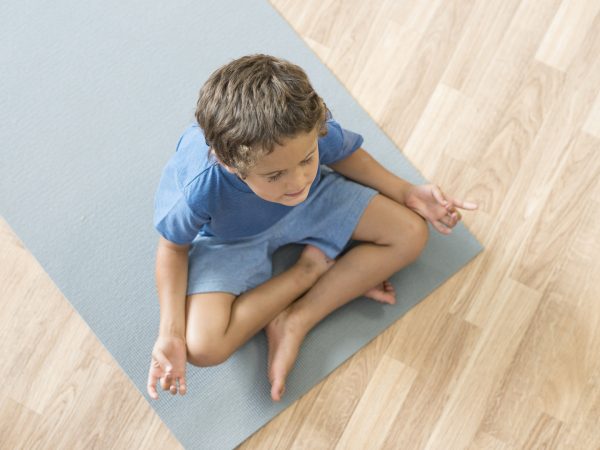How Can We Help Kids And Teens During Covid?
The pandemic is affecting the mental health of children and adolescents, how can we help?
Andrew Weil, M.D. | December 14, 2021

The emotional effects on adults of the Covid-19 pandemic (anxiety, depression, irritability) are well known. Researchers have now started looking at the effects on children and teenagers as well. The bad news is that young people are experiencing significant psychological pain due to the pandemic. The good news is that there are proven interventions that can help them overcome their distress.
For nearly two years, children and adolescents have lost the routine and connections of regular schooling, have been separated from friends and family for prolonged periods, and have lived in fear of losing their parents and other loved ones. A research paper published in March 2021 looked at 18 different studies conducted during the current and previous pandemics and found that the most common psychological effects on youngsters are anxiety and depression, along with fear, boredom, sleep disruption, and changes in appetite. The findings suggest that this period of pandemic-related stress may have long-term consequences for developing brains and emphasize the need for intervention.
That paper also reexamined two studies of mental health intervention programs performed during the Ebola pandemic. One included art therapy, yoga, and play therapy for children in Liberia, and it found benefit in these interventions regardless of the type or length. Another program, conducted in Sierra Leone, trained nurses to provide counseling to traumatized children; this program also showed that the intervention improved mental health in kids.
In addition, a Canadian study of kids in first through fifth grades compared a mindfulness-based intervention (in which children are taught to pay attention to the present moment) with a philosophy-for-children approach (in which the students were presented with a video or story and then invited to reflect on moral issues and personal values) to evaluate the potential benefits to mental health. The results suggested that philosophy-for-children better reduced symptoms of anxiety and inattention, but that mindfulness was more effective at addressing a child’s basic psychological needs.
Mindfulness training has previously been shown to improve the mental health of children. For example, one pre-pandemic (2014) study compared a group of sixth-graders who received a daily mindful meditation practice with a control group who did not. In the period following the intervention, those in the mindfulness group were less likely to express thoughts of self-harm or suicide than those in the control group.
The first step is awareness of youngsters’ emotional well-being during these stressful times, as getting them support starts with recognizing their needs. School guidance counselors and pediatricians are often good resources to help identify children who would benefit from intervention.
Andrew Weil, M.D.
Sources:
Meherali S, Punjani N, Louie-Poon S, Abdul Rahim K, Das JK, Salam RA, Lassi ZS. “Mental Health of Children and Adolescents Amidst COVID-19 and Past Pandemics: A Rapid Systematic Review.” Int J Environ Res Public Health. 2021 Mar 26;18(7):3432. doi: 10.3390/ijerph18073432. PMID: 33810225; PMCID: PMC8038056. https://pubmed.ncbi.nlm.nih.gov/33810225/
Malboeuf-Hurtubise C, Léger-Goodes T, Mageau GA, Joussemet M, Herba C, Chadi N, Lefrançois D, Camden C, Bussières ÈL, Taylor G, Éthier MA, Gagnon M. “Philosophy for children and mindfulness during COVID-19: Results from a randomized cluster trial and impact on mental health in elementary school students.” Prog Neuropsychopharmacol Biol Psychiatry. 2021 Apr 20;107:110260. doi: 10.1016/j.pnpbp.2021.110260. Epub 2021 Jan 22. PMID: 33493652. https://pubmed.ncbi.nlm.nih.gov/33493652/
Willoughby B. Britton, Nathaniel E. Lepp, Halsey F. Niles, Tomas Rocha, Nathan E. Fisher, Jonathan S. Gold. “A randomized controlled pilot trial of classroom-based mindfulness meditation compared to an active control condition in sixth-grade children.” Journal of School Psychology, Volume 52, Issue 3, 2014, Pages 263-278, ISSN 0022-4405, https://doi.org/10.1016/j.jsp.2014.03.002. https://www.sciencedirect.com/science/article/pii/S0022440514000296
https://philpapers.org/archive/BRIARC-4.pdf












